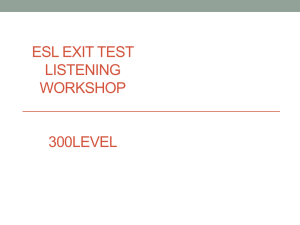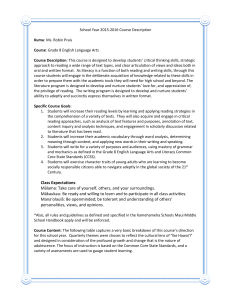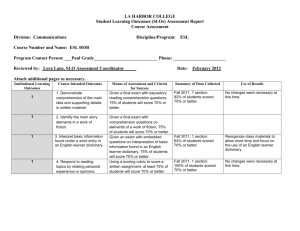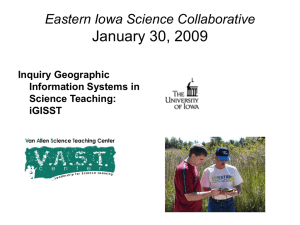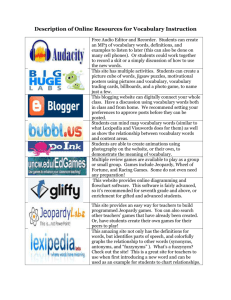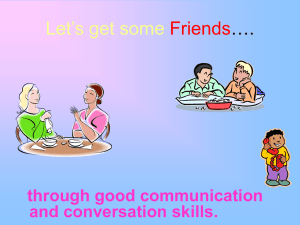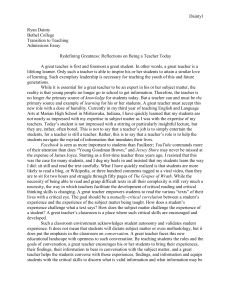6-12 Vocabulary and Comprehension Activities
advertisement
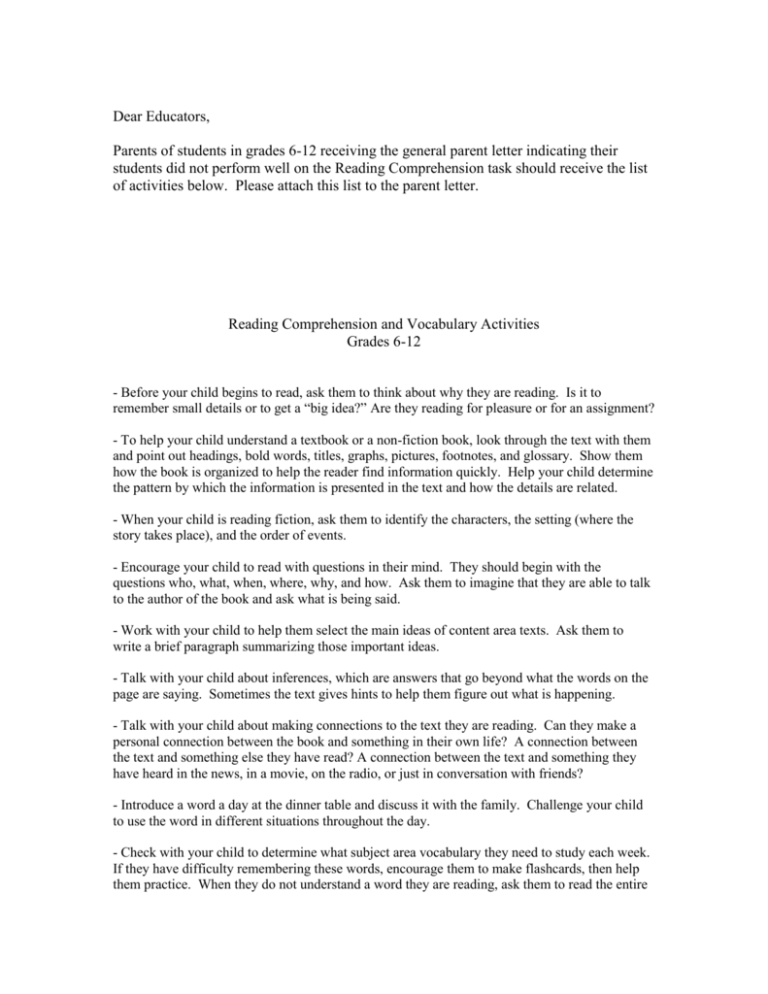
Dear Educators, Parents of students in grades 6-12 receiving the general parent letter indicating their students did not perform well on the Reading Comprehension task should receive the list of activities below. Please attach this list to the parent letter. Reading Comprehension and Vocabulary Activities Grades 6-12 - Before your child begins to read, ask them to think about why they are reading. Is it to remember small details or to get a “big idea?” Are they reading for pleasure or for an assignment? - To help your child understand a textbook or a non-fiction book, look through the text with them and point out headings, bold words, titles, graphs, pictures, footnotes, and glossary. Show them how the book is organized to help the reader find information quickly. Help your child determine the pattern by which the information is presented in the text and how the details are related. - When your child is reading fiction, ask them to identify the characters, the setting (where the story takes place), and the order of events. - Encourage your child to read with questions in their mind. They should begin with the questions who, what, when, where, why, and how. Ask them to imagine that they are able to talk to the author of the book and ask what is being said. - Work with your child to help them select the main ideas of content area texts. Ask them to write a brief paragraph summarizing those important ideas. - Talk with your child about inferences, which are answers that go beyond what the words on the page are saying. Sometimes the text gives hints to help them figure out what is happening. - Talk with your child about making connections to the text they are reading. Can they make a personal connection between the book and something in their own life? A connection between the text and something else they have read? A connection between the text and something they have heard in the news, in a movie, on the radio, or just in conversation with friends? - Introduce a word a day at the dinner table and discuss it with the family. Challenge your child to use the word in different situations throughout the day. - Check with your child to determine what subject area vocabulary they need to study each week. If they have difficulty remembering these words, encourage them to make flashcards, then help them practice. When they do not understand a word they are reading, ask them to read the entire sentence to look for clues to the word's meaning. If they are still confused, suggest that they read the sentences before and after the one containing the unfamiliar word. Next, they can look the word up in a dictionary or ask for help. - Turn off the television and read together. Reading magazines, newspapers, fiction, and nonfiction aloud with your child is a great way to increase their oral vocabulary. - Encourage frequent conversation with your child. Constant shared conversation builds vocabulary. - Use a photo from an album and ask your child to re-tell what happened the day the picture was taken. Encourage the use of vocabulary associated with the setting (e.g. tractor, milking, crops, etc.) of the picture and the use of sequencing words such as first, next, and last to provide the proper order of events. - Play a word definition game with your child. Using their knowledge of prefixes and suffixes, have them guess the meanings of words you select from the dictionary. Then give them a turn to try to stump you. Other games related to words and definitions are Think-it Link-it and Balderdash.
